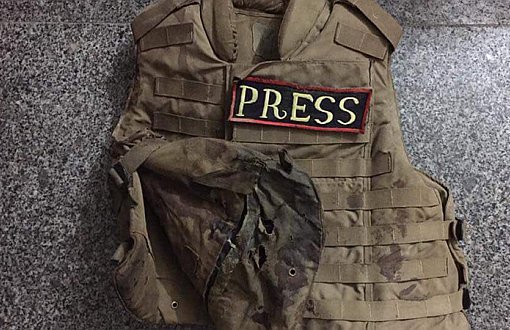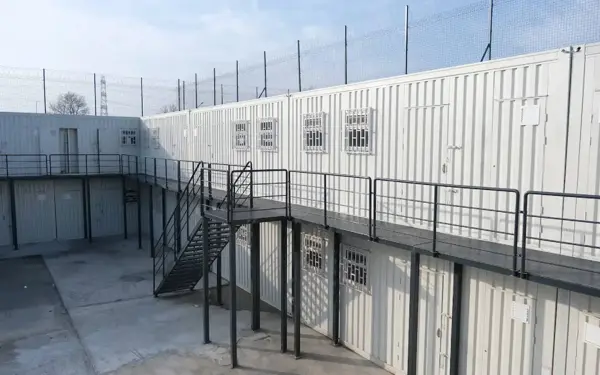* Photo: Arif Hüdaverdi Yaman / Anadolu Agency
Click to read the article in Turkish
The Resolutions 1738 and 2222 adopted by the United Nations (UN) Security Council in 2006 and 2015 respectively stipulate that journalists and civilians in war and conflict regions must be protected.
According to initial reports, two journalists have lost their lives and eight journalists have been wounded in the first seven days of Operation Peace Spring launched by Turkey into northern Syria. Two journalists died after a convoy departing from Rasulayn was bombed on October 13.
Seed Ehmed, a reporter for ANHA news agency, lost his life at the moment of attack while Çıra TV reporter Mihemed Hesen Resho died in the hospital.
Speaking to bianet, Reporters Without Borders (RSF) Representative to Turkey and bianet rapporteur Erol Önderoğlu has referred to the UN resolutions and made a call to the conflicting sides to take measures to prevent civilian deaths in the region:
'UN resolutions stipulate protection of journalists'
"The Resolution 1738 unanimously adopted by the United Nations Security Council in December 2006 directly stipulates that journalists in war- and conflict-ridden regions must be protected.
"The Resolution also indicates that as long as people continue acting like journalists, they cannot be regarded as a side to the conflict.
"When the United Nations considered the developments that unfolded in many parts of the world since 2006, it decided that this resolution would not be enough and, this time, in 2015, it adopted the Resolution 2222 on protection of civilians in war- and conflict-ridden regions.
"With the adoption of this resolution, except for conflicting sides in war and conflict regions, civilian personnel who have to intervene in the war medically, civilian officials who investigate the war on site and journalists who inform the public about the conflict have been taken under protection.
"When compared with the Resolution 1738 adopted by the UN in 2006, this resolution is more comprehensive in terms of protection of civilians and preventing them from being targeted.
'Death has become a price paid by journalists'
"According to the report of Reporters Without Borders (RSF), 80 journalists lost their lives across the world in 2018. 44 of these journalists, or 55 percent of them, lost their lives in conflict regions.
"Apart from the regions where organized crimes are prevalent or where there is no public security, being killed in war or conflict regions has become a price paid by journalists for the sake of news.
"In the light of this international stipulation, while conducting operations, states must consider the United Nations resolutions in the regions where they intervene and heed whether there are any elements that can be considered civilians in the region.
"The related resolutions of the United Nations, in fact, reflect the situation where international media representatives, who were directly targeted in Qamishli during Turkey's operation into northern Syria and were at the back of the convoy, narrowly escaped death.
'The attacking side will be held accountable'
"Therefore, if arms are not laid down in upcoming days, the things will become more complicated in the region and journalists must be left in peace in line with United Nations resolutions.
"In the event that media representatives are targeted in the upcoming days, we, as Reporters Without Borders, will hold the attacking sides responsible, regardless of which country or conflicting side they are from.
"It needs to be remembered that journalists' conformity to the principles of journalism is as important as their use of equipments suitable for the field". (HA/SD)










